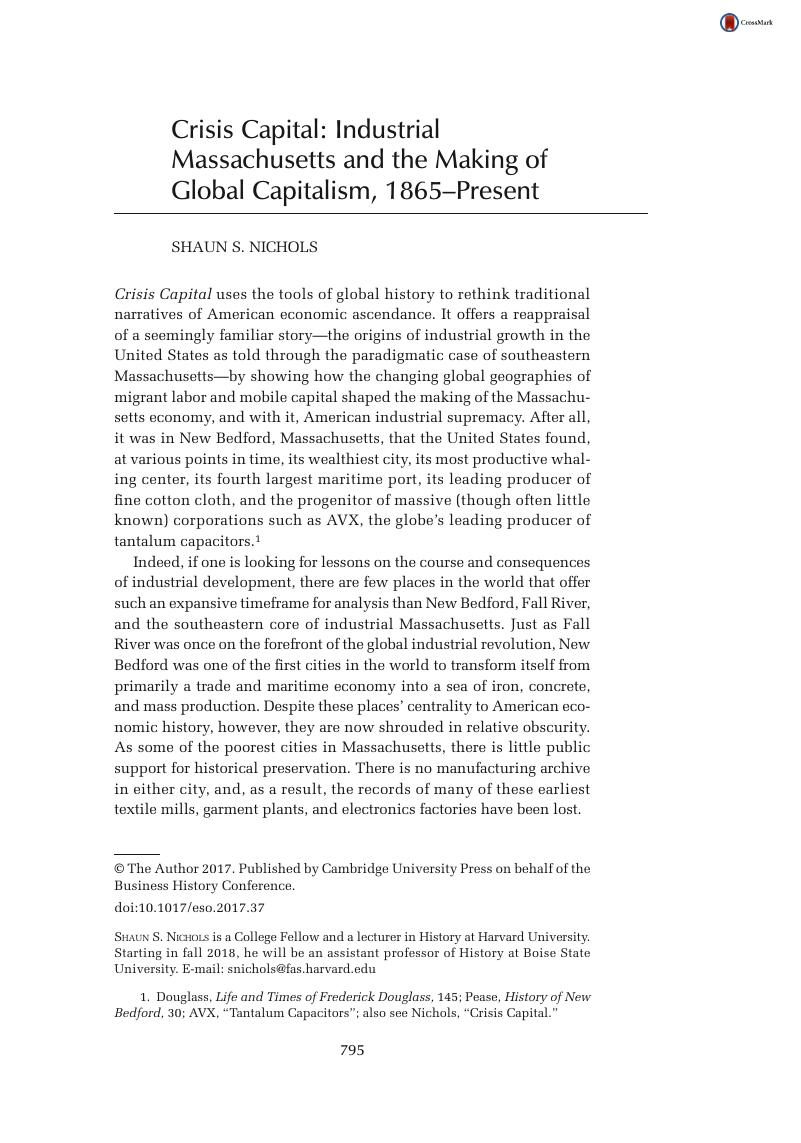Crossref Citations
This article has been cited by the following publications. This list is generated based on data provided by Crossref.
NICHOLS, SHAUN S.
2017.
Crisis Capital: Industrial Massachusetts and the Making of Global Capitalism, 1865–Present.
Enterprise & Society,
Vol. 18,
Issue. 4,
p.
795.
O’SULLIVAN, MARY
2018.
The Intelligent Woman’s Guide to Capitalism.
Enterprise & Society,
Vol. 19,
Issue. 4,
p.
751.



